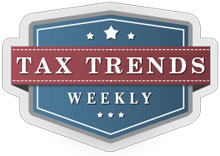Congress Divided Over Union Election Rule
Business groups and Congressional Republicans are set to fight proposed union election rule changes that they believe are unlawful and transform the government into a union surrogate as opposed to a referee. Pro-union groups and some Congressional Democrats see the changes as bringing union elections into the 21st Century.
Last month the National Labor Relations Board began the process of changing union election rules in a politically divided vote with three Democrats outvoting the two Republicans. The Board seeks to reissue rules it instituted in 2011 that shorten the time to hold employee elections and require businesses to give employees’ phone numbers and email addresses to unions.
The 2011 rules were challenged in court and ultimately were dismissed because the courts determined that the Board acted improperly by approving the changes without having a proper quorum.
Why Republicans and Businesses Object
In early March the House Education and Workforce Committee held a hearing over the proposed rules changes. House Republicans criticized the Board and the Obama Administration for turning the Board into an advocate on behalf of unions and proposing rule changes to increase union membership.
Business owners who testified before the committee claimed that the rules would give unions an unfair advantage by reducing the time between a union producing enough signed union cards to force an employee vote and the time to hold the election. Unions can spend months campaigning and informing employees while the new rules would reduce the time available to employers for educating employees.
Union Support for the Rule
The Board and union supporters point out that the proposed changes allow for electronic communication just as the federal courts use, reduce unnecessary delays, make procedures uniform across the country, and streamline the petition and appeals process.
The time between when enough employees sign union cards and an employee election would change from a five week to two month process down to a two or three week wait.
When the board last proposed similar rules changes its decision spawned a lawsuit filed by the Chamber of Commerce and the Coalition for a Democratic Workplace. In addition to challenging the vote as being deficient due to lack of quorum, the challenge argued that the Board was acting outside the scope of the powers granted to it by Congress, a charge repeated by some business leaders and attorneys who testified before the House Committee.
New Challenges Ahead
A new challenge is likely and will resemble many of the same arguments used in the 2011 challenge. Key points will be the claim that changes to the rules deny employees the fullest freedom in exercising the rights granted by the National Labor Relations Act by limiting their ability to gather information due to the compressed time frame.
A challenge is also likely attacking changes that eliminate the right of a party to challenge a Regional Director’s pre-election rulings until after an election is held and that this review itself is granted at the discretion of the Board.
These challenges appear to have merit given that Court take due process rights seriously. If the Board approves rules that do not allow parties the right to request pre-election reviews and/or leaves those reviews to the discretion of the Board then a successful challenge seems likely.

